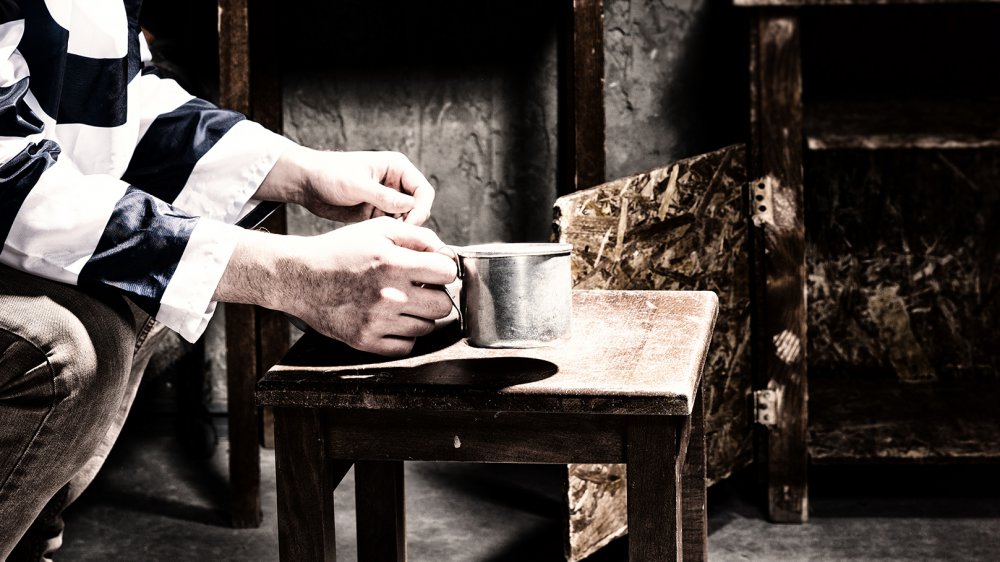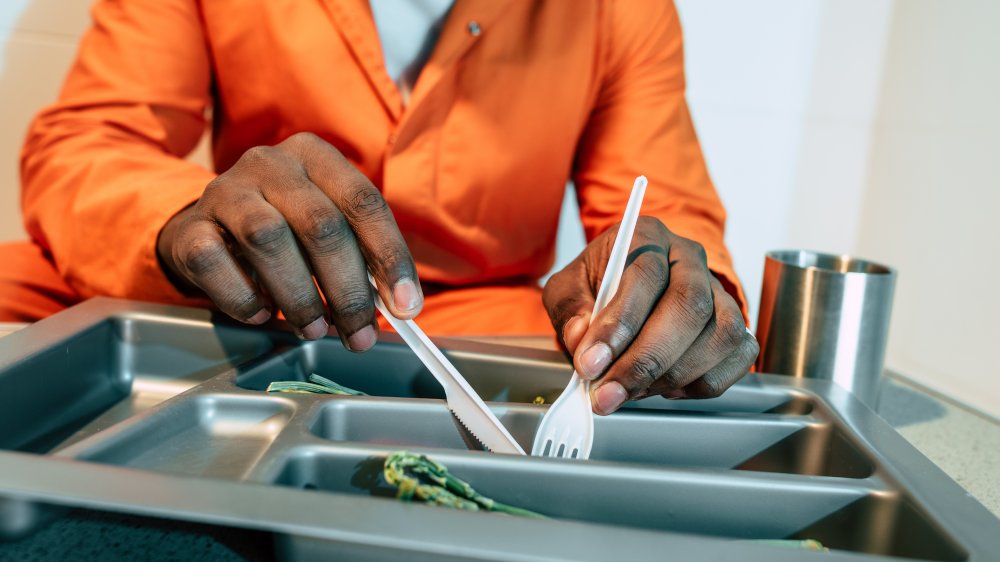How The Last Meal Before An Execution Works In The United States
There are two scenarios, each one roughly equidistant from the realm of possibility, that most Americans have considered. The first is "what would I do if I won the lottery?" The second: "What would my last meal be, before my execution?"
A death row inmate's last meal is a time honored tradition, and reports of the contents of a convict's final dinner have become a staple of macabre journalism. In an interview with The New York Times, author Ty Treadwell put it bluntly: "The line between news and entertainment in the U.S. has become somewhat blurred ... And people are interested in lives very different from their own, be they the Kardashians or death-row inmates." That said, it's easy to forget that these are meals served in the most regimented places on earth. There are rules. Not a lot of them, but there are rules, and they vary from place to place. Among the standards, according to Slate: no booze. It is, after all, bad for you.
Eat, drink, and be merry
In Florida, the Department of Corrections states that "To avoid extravagance, the food to prepare the last meal must cost no more than $40 and must be purchased locally." In Virginia, the options are even more limited — death row inmates are only allowed foods selected from the prison's prearranged meal menu.
But wait, there's more. If those examples seem stringent, they're nothing compared to Texas where, in 2011, last meals were rescinded entirely. The reason: convicted killer Lawrence Russell Brewer requested "two chicken fried steaks, a triple-meat bacon cheeseburger, three fajitas, a meat lover's pizza, a pint of ice cream and peanut butter fudge," per the BBC, then ate none of it, saying that he wasn't hungry.
Other requests have been denied over the years. In 1990, James Edward Smith reportedly asked for a "lump of dirt," which, as epicurean indulgences go, seemed like an easy get, but was turned down. Philip Workman wanted a vegetarian pizza in 2007, but not for himself — he asked that it be given to a homeless person. Again, no dice.
And in 2000, there was Odell Barnes, who asked for "justice, equality and world peace." To date, there's no word on whether the Texas DoC managed to find that in the mess.

